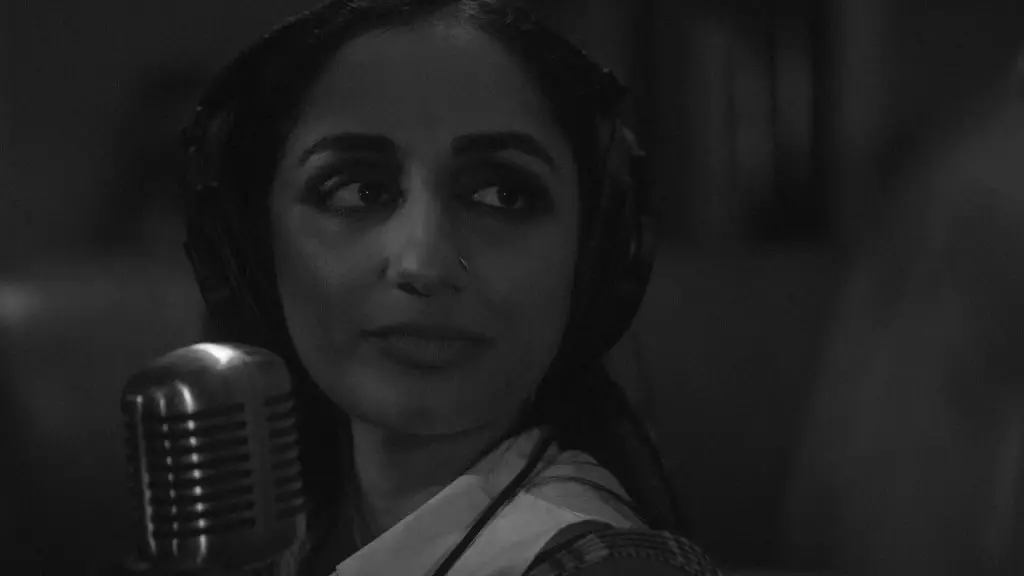Kiran Deol, a multifaceted talent known for her work in podcasting, has taken a bold leap into acting with her role in the zombie comedy film, “Didn’t Die.” This film is scheduled to make its grand debut at the Sundance Film Festival, specifically in the Midnight Section—a fitting showcase for a project that intertwines humor with the horrors of a post-apocalyptic world. Deol revisits her longstanding collaboration with director Meera Menon, bringing to life her character, Vinita, a cynical podcast host navigating the chaos of a zombie-infested society. Unlike her previous endeavors where she crafted narratives through audio, Deol now presents her unique take on storytelling through cinematic performance, effectively blending her past experience with her new challenges.
Vinita represents more than just a humorous survivalist; she embodies the contemporary struggles of coping with societal trauma. Her character’s rich emotional landscape is cleverly masked by an ironic distance—a defense mechanism honed through numerous personal and collective grief experiences. In this world filled with rabid “biters,” Deol’s portrayal reflects the anxieties of isolation and the impulse to craft a persona that offers both resilience and vulnerability. When her unfaithful ex, Vincent, reenters her life carrying a child, the plot thickens, pushing Vinita to confront her buried fears and shattered self-image. Deol’s portrayal resonates deeply, inviting the audience to ponder the complexities of human emotions amid adversity.
“Didn’t Die” serves as a poignant commentary on collective grief—a sentiment amplified by recent global events like the pandemic and natural disasters. Deol articulately connects her character’s struggles to the wider emotional landscape of a society wrestling with loss in various forms. The film’s narrative taps into a shared human experience that veers beyond genre conventions, inviting viewers to reflect on their own method of processing grief and trauma. Deol hopes that the film’s message offers catharsis—a vessel through which individuals can find understanding and community amidst shared experiences.
As a comedian and a creator, Deol is acutely aware of the shifting paradigm regarding representation in the entertainment industry. In her reflections, she underscores the importance of accessible platforms for diverse voices, emphasizing that the responsibility of building a brand now lies significantly with individual performers. Unlike in the past, where opportunities were scarce and often contingent on prevailing industry standards, today’s comedians are encouraged to cultivate their artistry online. This shift requires resilience and creativity—qualities Deol believes are intrinsic to the comedic craft.
The stark reality of working in a fear-driven industry often stifles ingenuity. Deol’s insights into the screenwriting and filming processes highlight the need for executives to take risks, enabling innovation in comedic storytelling. She poses a thought-provoking question: how can the industry foster the next iconic comedy series if decision-makers are shackled by a fear of failure? Her hope lies in a future where industry executives are empowered to support unconventional narratives and diverse voices, resulting in a flourishing artistic landscape. Comedic artists like Deol thrive when given the freedom to explore their creativity without fear of repercussion.
With her film debut marking a significant milestone, Kiran Deol is set to continue her artistic journey with her upcoming comedy special, “Joysuck.” Filmed at the renowned Dynasty Typewriter comedy club, this forthcoming project is keenly awaited by fans and critics alike. As she navigates this exciting phase of her career, Deol remains resolute in her commitment to pushing boundaries, promoting inclusivity, and fostering discussions around the intricate interplay of humor and emotional resilience.
Kiran Deol’s transition from podcaster to actress encapsulates a vital narrative of growth and adaptability, underscoring the artistic journey of a woman carving out her identity during challenging times. “Didn’t Die” is not merely a film; it’s a collective reflection on grief, resilience, and the potent power of laughter—even in the face of a zombie apocalypse.

